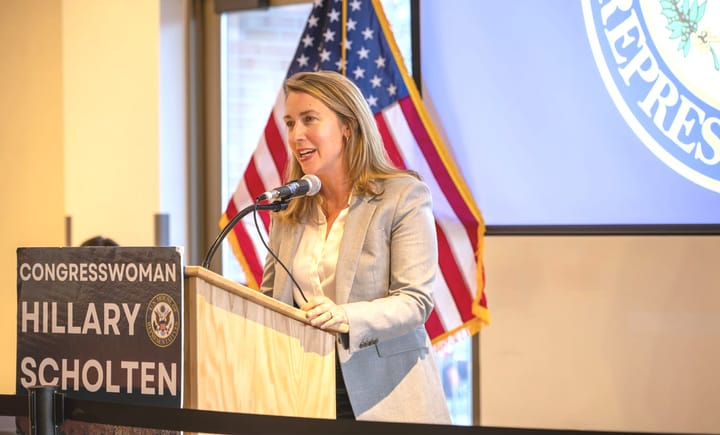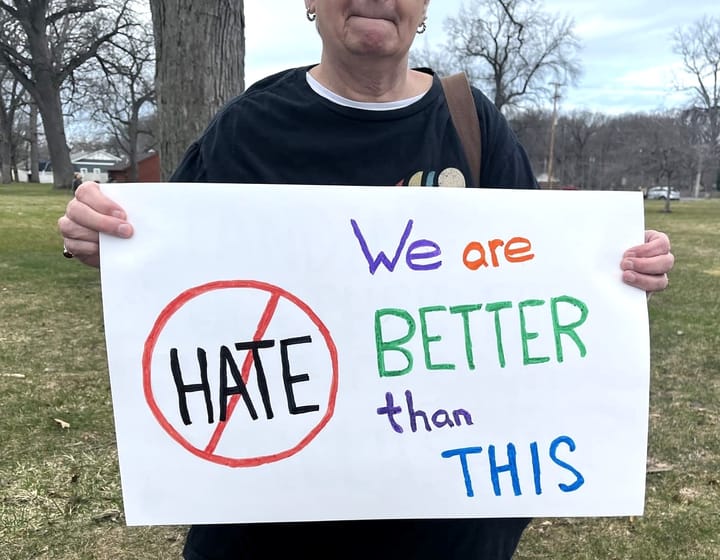Ottawa County, local pastor signal tentative settlement agreement for religious discrimination lawsuit
Another lawsuit in Ottawa County could be headed toward settlement after a Grand Haven pastor and the county board of commissioners had a settlement conference on Monday, Oct. 28.
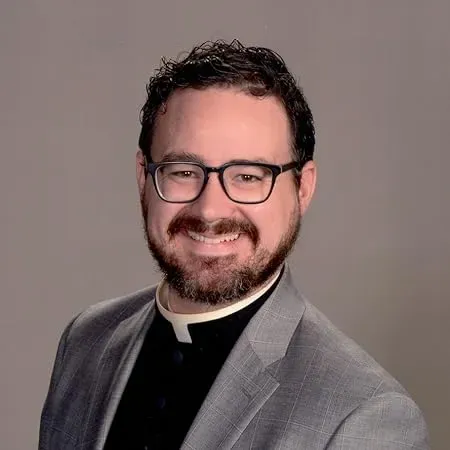
OTTAWA COUNTY — Another lawsuit in Ottawa County could be headed toward settlement after a Grand Haven pastor and the county board of commissioners had a settlement conference on Monday, Oct. 28.
Rev. Jared Cramer sued Ottawa County in October 2023 in U.S. Western District Court, claiming Board Chair Joe Moss used his position to not grant Cramer’s request to provide an invocation for a commissioners meeting last year.
Cramer’s lawsuit claims that Moss endorsed “a particular set of religious beliefs and exclude a particular set of religious beliefs" and therefore "is discriminating against certain religious beliefs," which is a violation of the Establishment Clause of the First Amendment.
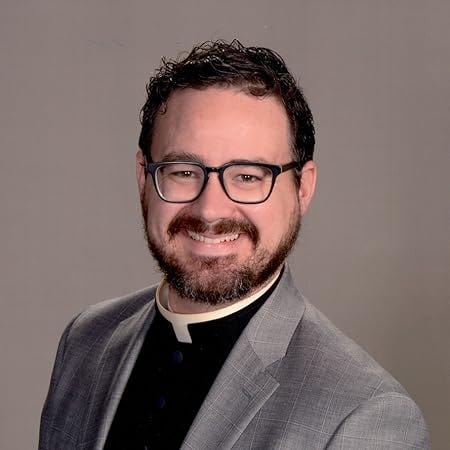
Cramer’s attorney, Sarah Riley-Howard, argued that the county enacted a formal invocation policy only after the lawsuit was filed and despite formally inviting Cramer to give an invocation late last year, it was too little, too late.
Read More: Moss offers to let pastor give invocation, but it's too little, too late
"The fact that, once they were sued, (the board) voted to implement a policy designed to follow the law and made a belated invitation to (Cramer) to lead the prayer does not let them avoid the legal remedies to which (Cramer) is entitled," Howard wrote in a Feb. 9 response to Kallman's request for dismissal.
Cramer, of St. John’s Episcopal Church in Grand Haven, claims he first asked Commissioner Roger Bergman, who represents the city of Grand Haven, if he could join the historically practiced rotation of area faith leaders who provide the invocation at the twice-monthly board meetings. He was directed to Moss.
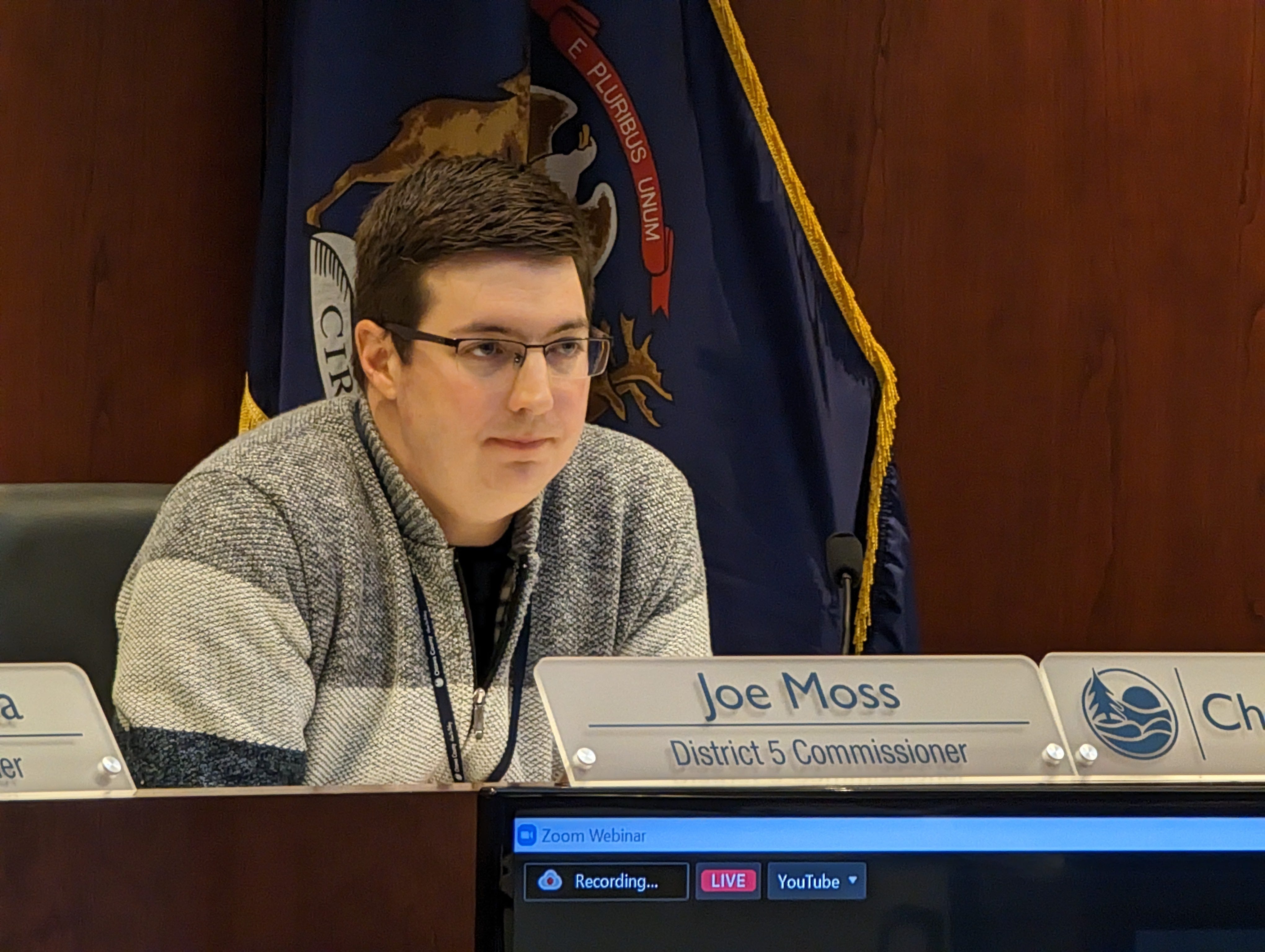
Howard said Moss abused his power to reward or punish local faith leaders based on whether they align with his personal religious beliefs.
Moss is the founder of far-right fundamentalist group Ottawa Impact, created in 2021 after he took issue with pre-K-6 school mask mandates during the COVID-19 pandemic. The group currently controls six seats on the 11-member board of commissioners.
Howard said that, despite sending Moss an email in May and a letter via certified mail in August, her client only received an invitation to give an invocation after litigation was filed.
Moss has never responded to this reporter’s requests for comment since he took office in January 2023.
"It's not clear what else Rev. Cramer could have done to get on that list," Howard wrote in previous filings. "He had given the prayer in the past, he had made a request to the commissioners of the districts where he lived and worked, and he had made a request to the chairman of the commission. Nonetheless, Rev. Cramer did not receive an invitation to lead the prayer."
Cramer ultimately gave an invocation prior to a commissioner meeting in February.
On Oct. 28, U.S. Magistrate Sally J. Berens issued a written order saying the court had “been informed of the parties' agreement to settle this matter in principle subject to board approval.”

Stipulated Dismissal Papers16.7KB ∙ PDF fileDownloadRead the magistrate's order from Monday, Oct. 29, 2024.Download
Berens ordered the parties to prepare dismissal papers, presuming that a majority of the OI-controlled board of commissioners will approve the settlement agreement, which has not been released publicly.
The tentative settlement comes after numerous attempts by the county to derail the litigation.
In July, U.S. District Court Judge Jane M. Beckering ruled that the county’s request to dismiss the case didn’t negate the fact that Cramer experienced potential discrimination.
“The harm alleged by Rev. Cramer is anchored not in future events but in disputed interpretations of past events,” Beckering wrote in the opinion published Tuesday. “His pleading sufficiently alleges a concrete factual context from which his claims arise. The court further determines that judicial resolution of the claims would be desirable under all of the circumstances.”
Just last week, the county lost another motion — this time to disqualify Howard from representing Cramer because she also is representing Commissioner Chris Kleinjans in a lawsuit against Michigan State University’s Extension Office, which has been amended to include Moss as an individual defendant.
In her ruling denying the disqualification request, Beckering said there was no evidence of a direct conflict.
“While Attorney Howard is acting as an advocate in Rev. Cramer’s case against the Commission, of which Kleinjans is now a member, Attorney Howard is not suing Kleinjans in his individual capacity; rather, Rev. Cramer’s suit challenges the propriety of the decision of the political body,” Beckering wrote in her order dated Wednesday, Oct. 23.
Kleinjans, who joined the commission on May 23 after winning a May 7 special recall election this year, filed his own lawsuit June 21 in the U.S. Western District Court claiming Extension violated his First Amendment Rights after giving him an ultimatum after he was elected: Take an unpaid leave through the remainder of the year or face termination.

Moss was added as a defendant in the Kleinjans case on Aug. 20, just days after M. Scott Korpak, the new District 7 director, confirmed that during a Dec. 7 meeting with then-interim director James Kelly, Moss and Ottawa Impact Commissioner Allison Miedema, the commissioners “threatened” the annual memorandum of understanding between the Extension and the county.
Read More: Ottawa commissioner amends lawsuit against MSU Extension to include Ottawa Impact leader
Howard said Kleinjans was not on the commission during the relevant time period when the substantial facts of Cramer’s case occurred.
Beckering seemed to agree with Howard’s argument in her recent ruling.
“The employment case that Attorney Howard is pursuing on Commissioner Kleinjans’ behalf is brought in his individual capacity. Hence, Reverend Cramer’s and Commissioner Kleinjans’ interests are not “directly” adverse,” Beckering wrote in her Oct. 23 order.
The next step in the Cramer case would be for the full board of commissioners to vote on the proposed settlement, most likely in closed session at the next meeting scheduled for 9 a.m. Tuesday, Nov. 12.
If the deal is approved by the board, it would be the fourth of five current lawsuits filed against the Ottawa County Board of Commissioners since the OI majority was sworn into office in January 2023.
In February, Administrative Health Officer Adeline Hambley and the county settled her yearlong wrongful termination lawsuit with her remaining in her role.
Although Hambley didn’t receive any additional compensation, the settlement agreement allowed a judge to determine if Hambley’s legal fees would be covered. In August, the judge in the case concluded the county must pay more than $188,000 for Hambley’s legal fees (she also was represented by Howard).
In October 2023, a finalist for an executive aide position, sued in Ottawa County's 20th Circuit Court, claiming then-administrator John Gibbs committed age discrimination when he hired a younger candidate with fewer qualifications than the county required.
Ryan Kimball settled with the county in September this year, with the county agreeing to pay $150,000 to Kimball and $75,000 to his attorneys.
Also in September, the Michigan Supreme Court declined to weigh in on a lawsuit filed in March 2023 alleging that the incoming OI commissioners violated the state's Open Meetings Act in the months after being elected, but before taking office.
The Michigan Court of Appeals unanimously ruled Jan. 26 that Muskegon County 14th Circuit Court Judge Matthew R. Kacel didn't make a legal error when he dismissed the lawsuit. With the state high court refusing to take up the case, it ended the litigation.
One lawsuits remains active against the board, which was filed by Gibbs in April this year after he was fired Feb. 29.
Sentinel Leach is a reader-supported publication. To receive new posts and support my work, consider becoming a free or paid subscriber.
Moss motioned to terminate Gibbs for cause during a public meeting — largely focused on allegations Moss publicly published on social media from Gibbs’ staff.
In federal court, Gibbs claimed the board retaliated against him, violated his First Amendment rights and that Moss defamed him on social media that “lack factual support” and that Moss “knew that the defamatory statements were false.”
There currently are no scheduled proceedings in the Kleinjans case, with proposed case schedules due to the court by Nov. 11. There currently are no scheduled proceedings in the Gibbs case.
— Contact Sarah Leach at SentinelLeach@gmail.com. Follow her on Twitter @SentinelLeach. Subscribe to her content at sentinelleach.substack.com.


